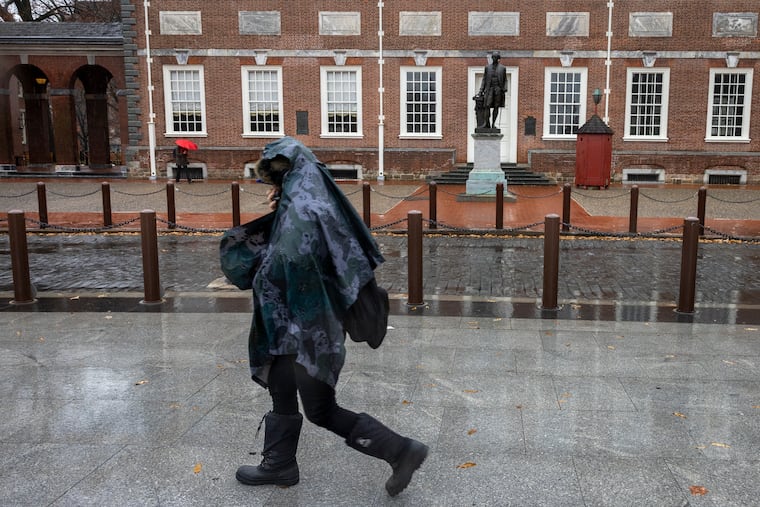A government shutdown could be imminent. What does that mean for Philly?
What you need to know about the potential government shutdown and its impact on Philadelphia.

The possibility of a government shutdown is becoming more likely, as Congress and the Biden administration continue to sit at an impasse.
The government’s fiscal year ends on Sept. 30, and if House Republicans aren’t able to come to an agreement, a shutdown will happen, ushering financial hardship and closures upon federal employees, their families and those impacted by the work they do.
» READ MORE: Government shutdown risk spikes as House Republicans leave town in disarray amid hard-right revolt
Like previous years, a shutdown symbolizes a polarized Washington and disagreements over how much the government should spend next year.
The last time a government shutdown occurred in 2019, millions of federal employees and active military members stopped getting their paychecks but continued to work, national parks and museums closed across the country, federal aid programs struggled, and airports saw major delays.
In Philadelphia, federal workers missed pay, parks and museums closed and lacked necessary staffing, and federal regulatory work saw pauses.
Now, as another shutdown looms, here’s what you need to know.
What is a government shutdown?
Traditionally, 12 annual appropriation bills outline funding for different government agencies across the U.S. Those bills are lumped together into a single “omnibus” package where they are approved in one vote.
The existing spending plans expire on Saturday, Sept. 30, marking the end of the government’s fiscal year. If the appropriations bill isn’t passed and signed into law by midnight on Oct. 1, it means that funding for the new fiscal year isn’t in effect, and the government could either completely or partially shut down.
When a shutdown happens, the government isn’t able to spend money — with some exceptions — meaning that federal employees across the country are expected to work without payment until after the shutdown is over. In turn, essential services will continue to operate, but resources will be significantly strained.
Who is affected by a government shutdown?
Hundreds of thousands of federal employees are impacted by government shutdowns since they are expected to work, but will not receive pay until after the shutdown is lifted. The employees are guaranteed backpay. Many employees are also at risk of being furloughed and would not be allowed to work (but would also receive back pay thanks to legislation passed in 2019).
Some of the main groups of employees that could be impacted by a shutdown include (but are not limited to) members of active military, federal law enforcement, federal transportation workers (like air traffic controllers and TSA agents, but not SEPTA), national park employees, scientific researchers, and some health care providers.
When would the government shut down?
Congress and the Biden administration need to reach an agreement by the end of the federal fiscal year on Sept. 30. If they don’t, the shutdown would go into place on Oct. 1.
What was the longest government shutdown?
The longest, and most recent, government shutdown lasted 34 days, taking place from Dec. 22, 2018 through Jan. 25, 2019. It was also the second government shutdown to occur during Donald Trump’s presidency. That shutdown ended after East Coast airports faced major delays when unpaid air traffic controllers stopped coming to work.
What could a government shutdown mean for Philly?
In Philadelphia, the most recent government shutdown led to the closing of both Independence Hall and the Liberty Bell Center.
The city’s Immigration Court was closed, accepting only emergency filings for people already in detention.
Most federal Eastern Pennsylvania law enforcement officers continued to work without pay but some employees deemed nonessential were temporarily furloughed. Essential Philadelphia International Airport employees continued to work without play, but resources were strained, with some air traffic controllers being furloughed.
Workers at shelters that serve vulnerable populations and rely on federal funding worried about when payments would come.
» READ MORE: 2019: What’s been affected so far by the government shutdown